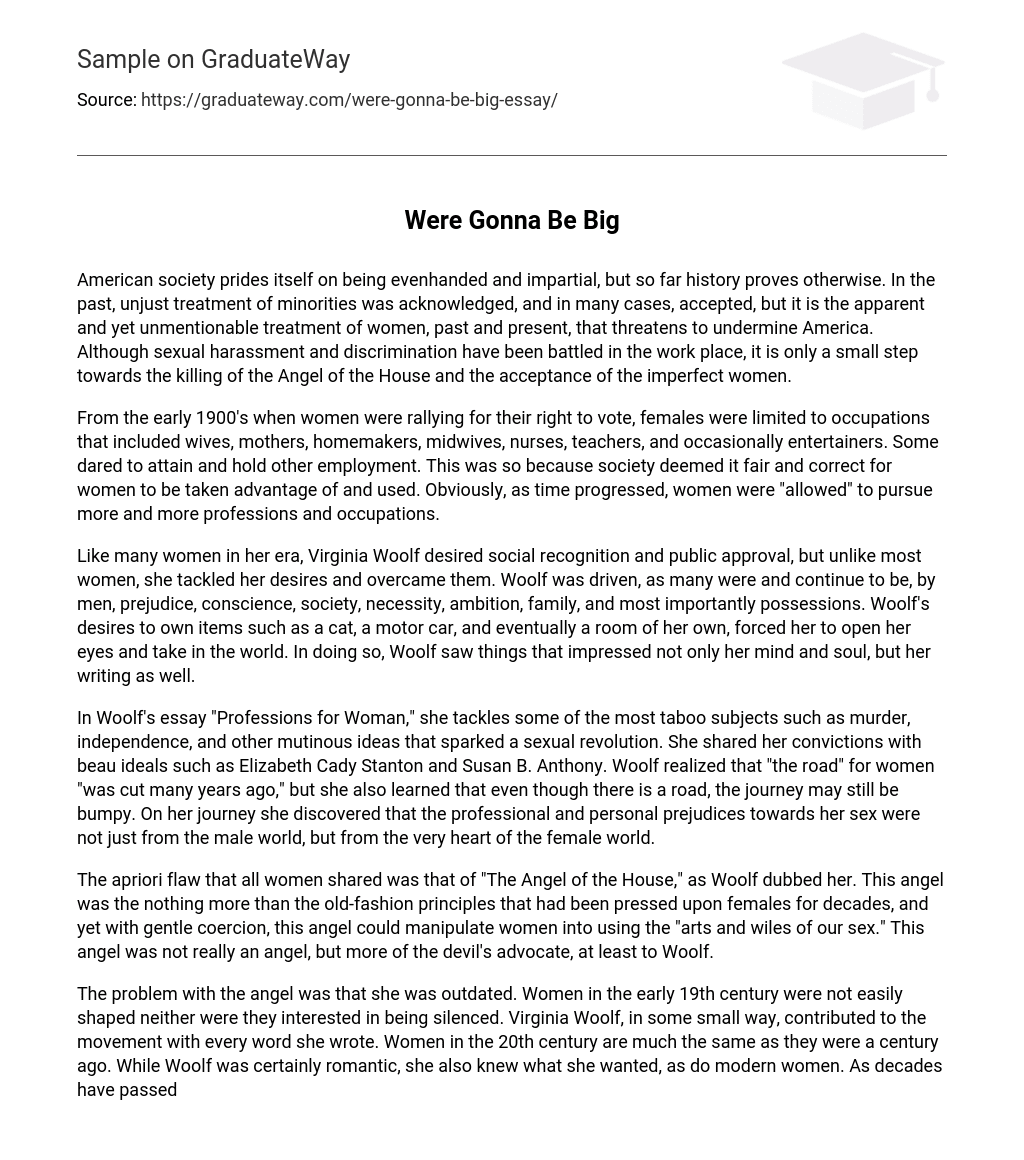American society prides itself on being evenhanded and impartial, but so far history proves otherwise. In the past, unjust treatment of minorities was acknowledged, and in many cases, accepted, but it is the apparent and yet unmentionable treatment of women, past and present, that threatens to undermine America. Although sexual harassment and discrimination have been battled in the work place, it is only a small step towards the killing of the Angel of the House and the acceptance of the imperfect women.
From the early 1900’s when women were rallying for their right to vote, females were limited to occupations that included wives, mothers, homemakers, midwives, nurses, teachers, and occasionally entertainers. Some dared to attain and hold other employment. This was so because society deemed it fair and correct for women to be taken advantage of and used. Obviously, as time progressed, women were “allowed” to pursue more and more professions and occupations.
Like many women in her era, Virginia Woolf desired social recognition and public approval, but unlike most women, she tackled her desires and overcame them. Woolf was driven, as many were and continue to be, by men, prejudice, conscience, society, necessity, ambition, family, and most importantly possessions. Woolf’s desires to own items such as a cat, a motor car, and eventually a room of her own, forced her to open her eyes and take in the world. In doing so, Woolf saw things that impressed not only her mind and soul, but her writing as well.
In Woolf’s essay “Professions for Woman,” she tackles some of the most taboo subjects such as murder, independence, and other mutinous ideas that sparked a sexual revolution. She shared her convictions with beau ideals such as Elizabeth Cady Stanton and Susan B. Anthony. Woolf realized that “the road” for women “was cut many years ago,” but she also learned that even though there is a road, the journey may still be bumpy. On her journey she discovered that the professional and personal prejudices towards her sex were not just from the male world, but from the very heart of the female world.
The apriori flaw that all women shared was that of “The Angel of the House,” as Woolf dubbed her. This angel was the nothing more than the old-fashion principles that had been pressed upon females for decades, and yet with gentle coercion, this angel could manipulate women into using the “arts and wiles of our sex.” This angel was not really an angel, but more of the devil’s advocate, at least to Woolf.
The problem with the angel was that she was outdated. Women in the early 19th century were not easily shaped neither were they interested in being silenced. Virginia Woolf, in some small way, contributed to the movement with every word she wrote. Women in the 20th century are much the same as they were a century ago. While Woolf was certainly romantic, she also knew what she wanted, as do modern women. As decades have passed and women have evolved, Woolf and other revolutionary female authors are some of the most influential and yet unrecognized influences on the modern woman. Less than a century ago, women were not allowed to run stores, much less corporations or industries as they do today. Although women realize the change in society, few acknowledge the importance, and even fewer thank women like Woolf for their prestige.





